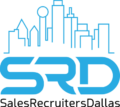What is company culture and what does it mean to you?
Company culture (or corporate culture/organizational culture) is the behavioral matrix by which every employee at a company is connected.
When you’re analysing the reasons for applying or a job, and especially at later stages of the interview process, organizational culture will creep in as a critically important factor in your understanding of how you will fit into your new role.
A good way of understanding how organizational culture fits into the environment of a working business is to understand how its impact and cause differs from market or industry cultures:
- Market and Industry Cultures: behaviours and ethics determined in part by the collective market players and wider industry such as: governance, standards, legal compliance etc. This will, to a degree, create a framework of behaviours commonly held amongst companies and competitors, central to the maintenance of the wider industry.
- Internal/Organizational Cultures: an inside/out cultural movement, generated by individual companies that reflect their specific set of commonly held ethics and behaviours. In this regard, this type of cultural relationship is much more tangible and personal.
Most critically organizational culture and it’s forming, evolution and growth is determined entirely by the people within a company. It’s completely equitable: everyone is responsible for it, and everyone is part of making it. Rather than a set of HR-mandated policies or new rules designed to engage or humanise a workplace, (like the introduction of new perks), the development of modern, post-pandemic organizational culture takes place across behavioural and collaborative connections, and is built through work, rather than aside from it.
Measuring Organizational Culture
As a new employee, it’s very hard to truly get to grips with what company culture means in real time until you’ve started working. To counter this, it’s worth building into your interview strategy a series of questions that tries to get under the skin of organizational culture and what it means to your interviewer.
As Michael R. Neece at Interview Mastery said:
“Interviewers say “the candidate fits” or “doesn’t fit” to describe a candidate’s qualifications. What interviewers are really saying is the candidate fits or doesn’t fit the company culture. To perpetuate corporate culture, companies hire people they feel “fit” and reject qualified candidates whom they believe “don’t fit” their culture. During each interview, you have an opportunity to assess how the culture aligns with your values. Rarely will you find an environment totally aligned with your values. You can, however, find organizations where the culture and your values can coexist”.
Questions you should ask your interviewer to better understand company culture
- Please describe the company or department culture in three words or three phrases,
- How does the company (team) handle conflict or differing opinions?
- How does the company recognize employee accomplishments?
- Does the company have a “Code of Ethics?”
- Please describe the leadership or managerial style at your company?
- What qualities do the most successful employees in your company possess?
- What is the company’s attitude towards professional and educational advancement/L&D??
Post-Interview Hack! How to spot signs of company cultural significance in an interview.
You’ve got a lot on your mind during an interview, but after you’ve depressurized from your interview take a moment to think about the questions asked of you, and the interviewer’s answers to your questions. You can ascertain elements of company culture from the following:
- How does the company treat their employees?
- What phrases were used when describing the working environment, such as “target driven”, or “empathetic”, or “flexible working to fit employee need”, or “KPI dominated”?
- Was there a theme to the questions you were asked IE did the interview focus on billing at previous jobs, or why you were not promoted?
- How prepared and alert was the interviewer?
- Was the interview late, aloof, rude or disparaging?
- Were you treated like a guest or a prisoner?
- Were you given an interview schedule?
- Did they answer your questions with transparency and easy, or were they guarded?
- How considerate, personal or communicative was the company/external recruiter?

